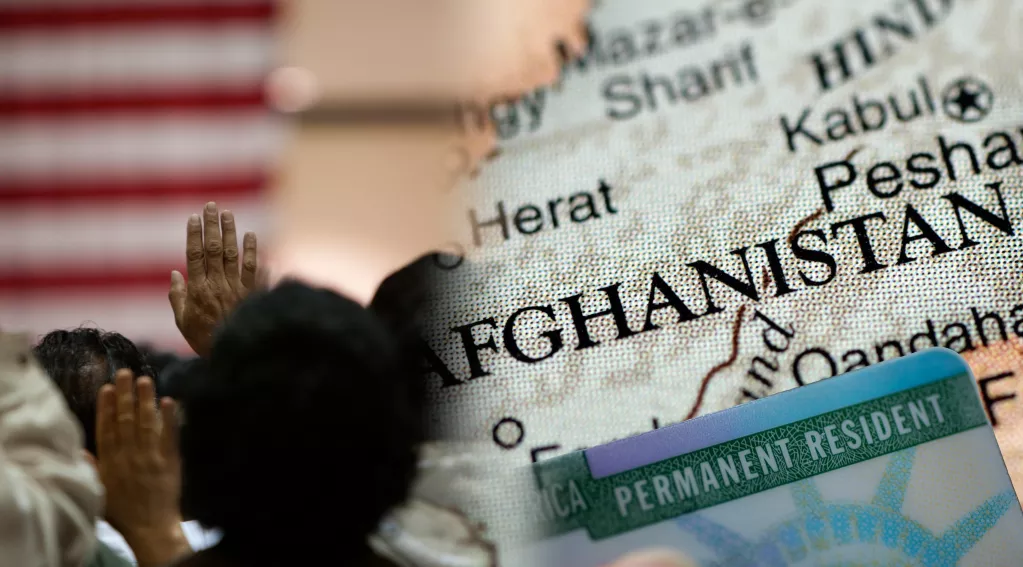Should Thousands of Afghans Receive an Expedited Pathway to Citizenship?

News about Afghanistan has faded from the headlines, but it still remains one of the country’s most critical immigration challenges. The collapse of Afghanistan to the Taliban in August 2021 spurred a refugee crisis of our times and resulted from the first major foreign policy blunder of the new Biden administration. As thousands of Afghans raced to flee their country on a Taliban-imposed deadline of complete takeover, the United States participated in one of the largest evacuation airlifts in history, bringing thousands of Afghans to the United States. Although the rescue mission was intended to evacuate Americans and Afghani military allies stuck behind, many who did not help U.S. personnel during the War on Terror also boarded these flights. Nearly 80,000 Afghan nationals are now in the United States one year later.
Who are these Afghan evacuees? While we know that some of them have assisted our military, many did not. Under the current administration, speedy processing – not safe vetting – has been the priority. Allowing unvetted parolees from a terror-prone nation into the United States, according to FAIR, is a serious national security threat. FAIR notes that terrorists will recognize this vulnerability in our system as an easy way to do harm. Not to mention, research has shown that many Special Immigrant Visa (SIV) applicants are fraudulent. So, what is Congress’s solution for dealing with 76,000 Afghan refugees? Put them on a path to citizenship.
A bipartisan group of legislators recently introduced legislation called the Afghan Adjustment Act, which would allow Afghans with temporary humanitarian status to apply for permanent residency rather than through the asylum-seeking process. The bill would require additional background checks and permit the State Department to resettle refugees here for the next ten years.
But this proposal presents numerous problems: For starters, many of these parolees are unvetted and some may have ties at home to terrorism or have engaged in criminal activity. Many leaders in Congress are echoing their support for this one-size-fits-all piece of legislation hailing the bill as a victory for our Afghan “allies” that must pass “without delay.” Certainly rewarding fully-vetted and verified Afghan allies with resettlement is a moral obligation for the United States, but there are many in the mix who never helped American soldiers or even worked against them.
Actually, we need delay. It is the duty of the United States government to fully vet every single refugee entering the country. Not doing so is a threat to our national security. No matter how long the process takes or how tedious the paperwork for each department is, it is necessary. Congress should instead seek to update our vetting system with the best security protocols so that we know exactly who is trying to enter the country. FAIR has also called for Congress to provide aid towards regional resettlement options abroad for refugees who share similar linguistic and cultural values in those countries. Allowing delays in processing and rigorous vetting only ensures that bad people aren’t fast-tracked to citizenship. There is also no need to rush it for thousands of unvetted Afghans.
Luckily, the Afghan Adjustment Act has been met with skepticism from those who cite vetting and security as cause for concern. Not only are these people without proper documents impossible to screen, but they have fled from a hotbed of terrorism that poses a public safety risk to American citizens. To put it simply, we can’t know which persons would be the next terrorist or criminal at home. DHS has designated Afghanistan for Temporary Protected Status due to “ongoing armed conflict” and “temporary conditions” that prevent Afghans from being returned. It was even recently discovered that more than 300 of these evacuees were flagged by the Pentagon for having known ties to terrorism.
Congress needs to tap the breaks on this legislation and verify who these people are before rushing to make them citizens of the United States.

